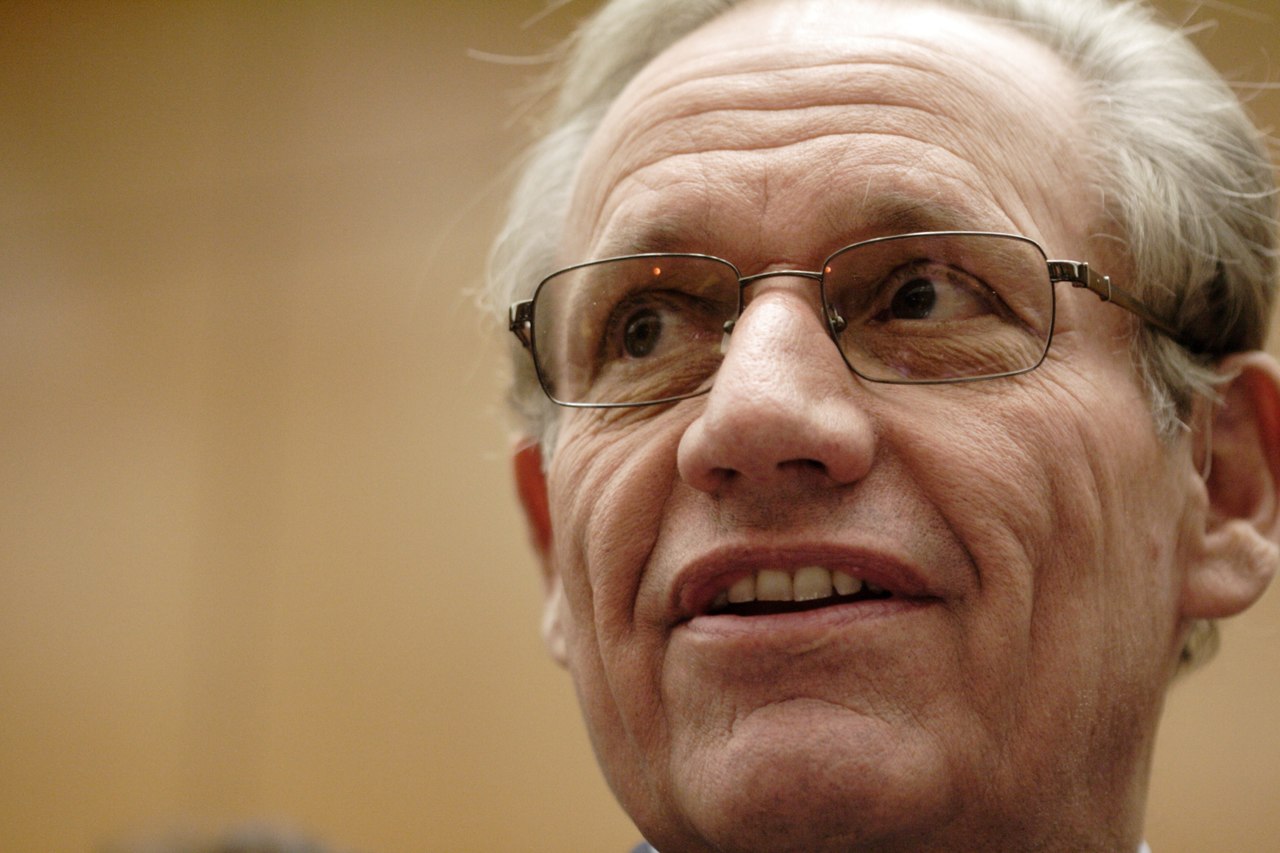
Bob Woodward at a 2009 meeting with International Visitors Leadership Program participants at the Department of State, Washington, DC. (Photo by Bektour)
Bob Woodward, often praised with superlatives such as “the best reporter of our time [and maybe] the best reporter of all time,” has 24 short videos on investigative journalism on the site MasterClass.
These are from 2017, but I only just watched the material and found it interesting, informative, and inspirational. As always, the idea that MasterClass sessions for any figure are “classes” is a matter of naming. Woodward’s 4.5 hours total (which include discussion sessions with presumed students from actual university courses he has taught) is little more than a single week’s seminar. Woodward speaks so slowly there is even less material than one might expect. (A friend listens to MasterClasses at 2x speed—the platform adjusts the pitch of voices to sound acceptably normal—and Woodward on 1.25x speed did not seem rushed to me at all.)
Because the recordings were made only a few months after Donald Trump’s inauguration, some of what is said feels dated, especially regarding the role of media forced to try to cover responsibly every new statement or event. For instance, Woodward says journalists should slow down in order to process events and to do their research, but he also suggests that scrambling to make sense of chaotic tweets and other statements and events “every ten minutes” is hard but should be done. This advice to struggle to cope with the political strategy of “flooding the zone with shit” seems to go against what many now believe is partially responsible for the erosion of journalism in the US and elsewhere.
Woodward also rues increasingly negative public attitudes about the media and authorities in general, but his solution seems to be merely to work harder. I believe many journalists have worked harder than ever in our era, but if anyone had a solution to countering conspiracy theories, science denial, and heightened polarization—all issues that the media might be presumed to help with in a functioning democracy—we might not have so much of them in society.
(Writer Tom Nichols, whose book The Death of Expertise: The Campaign Against Established Knowledge and Why It Matters is being re-issued, tells The Atlantic, “Experts can tell us about risks, and we can choose to take those risks. But if we simply block our ears and insist that we know better than everyone else because our gut, or some TV personality, or some politician, told us that we’re smarter than the experts, that’s on us.”)
The MasterClass company (Yanka Industries, Inc.) announced Woodward’s class with: “…Woodward will tap into his personal experiences to teach students what truth means, how to uncover it, and how to build a story with it.” Those are bold claims yet are the most interesting aspects of his talks. They made me think yet again about what “a story” is and when it is “good.” (There are, of course, an infinity of answers, starting with genre.)
For Woodward, one answer to story is: “There is reality. As a reporter you can come up with the best obtainable version of the truth.” He says journalists are in “the living business of assessing information,” and he of course has his own methods, including a severe persistence and, more rarely, confrontation with sources and interview subjects.
“[I]f you want to be friends [with these people], go have another job,” Woodward says.
But his approach more generally, he says, could be seen as him trying genuinely to understand and asking people directly to help him do so. When he says the words “report” and “reporter,” it sounds as if he is saying “rapport.”
At times these relationships get personal, emotional, even intimate, Woodward admits, maybe not the first thing people think of with journalism. He shows his notes from his section on “Penetrating the CIA,” in which he details a long flight taken with then-Director of the CIA William J. Casey, who has some drinks, relaxes, almost unthinkably criticizes his boss, Ronald Reagan—and has dandruff on his coat. Details like this, often suppressed in Woodward’s journalism, show crossovers with other forms, such as literary nonfiction.
Doing his work is sort of fun, he says. “Who is this person? Who is this man? And what drives him?” That too sounds like an approach of literature.
“The relationship, yes, is business,” Woodward says. “But who somebody is is who they are. It’s the books they’ve written. It’s the relationship with their family. It’s where they came from. It’s who their siblings were, what they care about. So as a reporter you can’t unrelate those. They’re related. They’re integral.”
Near the end of the brief sessions he says, “[F]ind something important to work on. Work it as hard as you can. Find out where’s the center of gravity.”
“It’s a very dangerous time. The only answer is better, more authoritative stories.”
